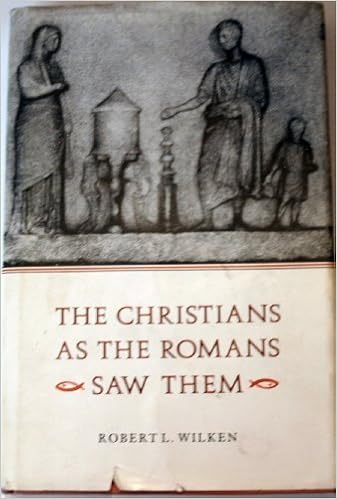This book came up on a list of best Christian history books, and having found a good copy at a cheap price, I decided to try my hand at reading it. I was glad that I did. It is one of the most interesting takes on early Christianity I have read, one that seems like a very obvious study to undertake but that Wilken actually did.
Wilken focuses on the work of five individual Roman writers over the course of the first four centuries of Christianity--Pliny the Younger, Galen, Celsus, Porphyry, and Julian the Apostate. In the course of doing so, he shows how the reaction of Christianity changed especially as it increased in popularity.
One issue with early writing about Christianity from those outside of the communion of believers is that so little of it survives. Pliny and Galen both mention it only briefly, as during their lifetimes, the religion was hardly widespread. Pliny's letter to Titus regarding what to do about Christians was well familiar to me. In it, he calls Christianity a superstition, which was one of two main ways that it could be perceived by those outside its associates. Galen, by contrast, in his brief offhand mentions of the faith seems to equate it with philosophy.
Celsus and Porphyry both take the religion much more seriously as a threat to social order. Alas, neither of their writings survive in whole. However, we are lucky to have large chunks of their works preserved in the writings of others who wrote responses to their work. Although both writers see issues with the faith mostly in relation to societal order, the latter is more familiar with Christian teachings. Such would be even more the case with Julian, who was raised Christian. As such, each writer posed a greater challenge to Christian orthodoxy, even as Christian orthodoxy took on a stronger and stronger role within the empire. This intermix of arguments for and against Christianity, Wilkin argues, in the end, opened up new avenues in intellectual thinking throughout the Western world, avenues that continue to reverberate today.







No comments:
Post a Comment